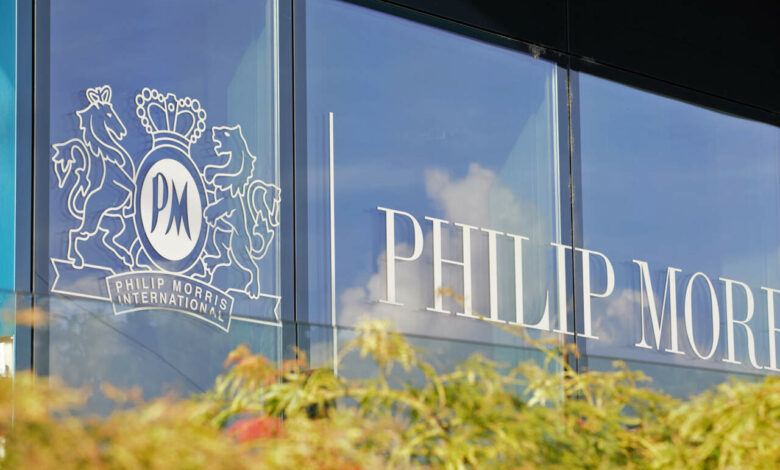New Report Highlights Philip Morris International’s Progress Towards Becoming a Smoke-Free Company

Philip Morris International’s (PMI) latest Integrated Report communicates the progress the company is making towards achieving its purpose—the company’s statement of purpose articulates PMI’s aim to deliver a smoke-free future by focusing its resources on developing, scientifically substantiating, and responsibly commercializing smoke-free products that are less harmful than smoking, with the aim of completely replacing cigarettes as soon as possible and to evolve in the longer term into a broader lifestyle, consumer wellness, and healthcare company.
Building on its ESG framework, PMI developed eight strategies targeting the company’s most pressing impact areas. To accompany these eight strategies, PMI established 11 goals, which form the basis of its 2025 Roadmap, and 19 key performance indicators (KPIs) to measure progress via its Sustainability Index. Each KPI is also aligned with one of two drivers: product sustainability (11 KPIs) or operational sustainability (8 KPIs).
Last year, PMI also published its first ESG KPI Protocol, which includes the definition, methodology, and scope of each of the Sustainability Index’s KPIs to provide measurable, verifiable, consistent, and accurate reporting on progress. In conjunction with its latest Integrated Report, the company is also publishing an updated Protocol that notably accounts for efforts undertaken during 2022 to make these KPIs even more robust.
Progress against PMI’s sustainability aspirations continued mostly apace in 2022 as it sought to tackle the impacts of its products (what it produces) and its operations (how it produces).
On the social side of its product impact, the company continued to transform and deliver on its purpose; further, it continued implementing youth access prevention programs in its direct and indirect retail channels. Mindful of the importance of reducing post-consumer waste, it made progress in implementing take-back programs for its smoke-free devices and consumables and increased its electronic device repair capabilities.
Product Impact
Social
- 24.9 million: Estimated total adult users of PMI’s smoke-free products (2021: 21.7 m)1
- 32.1%: Of net revenues derived from smoke-free products (2021: 29.5%)2
- 73: Markets where PMI smoke-free products are available for sale, of which 42% are in low- and middle-income countries (2021: 71, 42%)3
- USD 10.7 billion: Cumulative investment behind smoke-free products since 2008 (2021: USD 9.2 billion)4
- 91%: Of total shipment volume is covered by youth access prevention programs in indirect retail channels (2021: 91%)5
- USD 0.3 billion: Annual net revenue from wellness and healthcare products (2021: USD 0.1 billion)
Environmental
- 86%: Recycling rate of IQOS devices returned to centralized recycling hubs (weighted-average percentage of each device that is recycled) (2021: 86%)6
- 68%: Of shipment volume covered by markets with anti-littering programs in place for combustible cigarettes
- 8.5%: Of shipment volume covered by markets with smoke-free consumables take-back programs7
On the social side of PMI’s operations, the company expanded access to structured lifelong learning offers among PMI employees, published a strengthened commitment to human rights, and completed its sixth and seventh human rights impact assessments, in Brazil and Malaysia. On the environmental side, it continued decarbonizing its direct operations, and its science-based targets were validated for net zero GHG emissions across its value chain by 2040. In conjunction with the UN Biodiversity Conference (COP 15) in December 2022, the company announced new long-term biodiversity and water ambitions and strategies, aligned with the post-2020 biodiversity framework adopted by parties to the convention.
Operational impact
Social
- 40.7% Of management positions are held by women, exceeding our 2022 target of 40% (2021: 39.7%)
- 7 Human rights impact assessments conducted since 2018 in the highest-risk countries (2021: 5)
Environmental
- 55% Proportion of tobacco purchased at no risk of net deforestation of managed natural forests and no conversion of natural ecosystems (2021: 37%)
- Triple A Score from CDP for climate, forest, and water security for the third consecutive year
As a strong complement to the content and data included in PMI’s 2022 Integrated Report, the company has developed 12 case studies and market stories that showcase the impact and highlight how PMI affiliates worldwide drive sustainability. All case studies and market stories are available online in a dedicated section of pmi.com/sustainability.
The preparation of PMI’s Integrated Report 2022 considers guidance of international standards and frameworks, including the Global Reporting Initiative (GRI), the UN Global Compact (UNGC), the UN Sustainable Development Goals, the IFRS Foundation—including use of its SASB Standards, Integrated Thinking Principles, and Integrated Reporting Framework—and some of the recommendations from the Task Force on Climate-related Financial Disclosures (TCFD)
